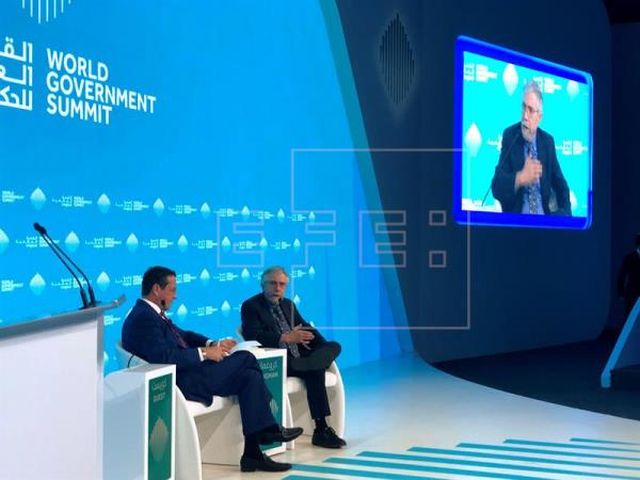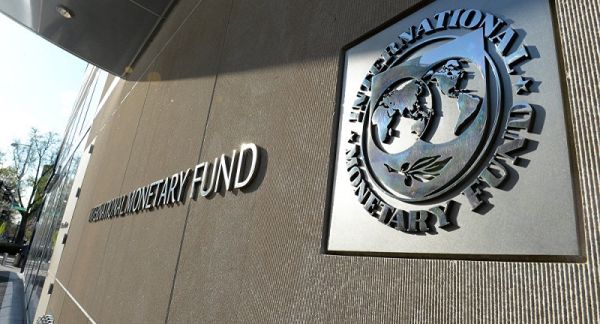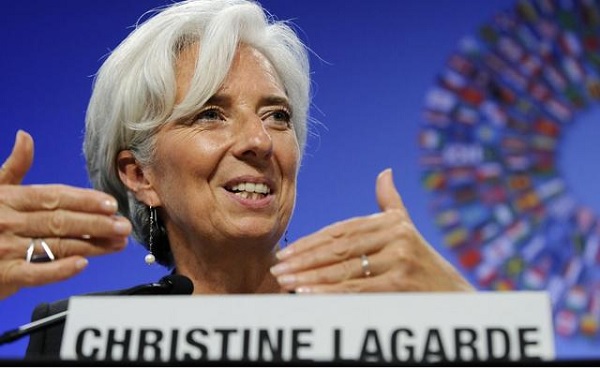
by admin | May 25, 2021 | Business, News

Prime Minister Narendra Modi
Bangladesh, Bhutan, Sri Lanka and Maldives now have more per capita GDP than India
New Delhi: The social media is buzzing after the International Monetary Fund (IMF) predicted that Bangladesh will overtake India in per capita GDP for 2020.
As India’s growth falls, amongst the most in the world, India is on track to fall below Bangladesh in terms of the per capita GDP. India will grow smartly next year, as per IMF.
As per the World Economic Outlook report of IMF released on Tuesday, India’s per capita GDP is set to plunge by 10.5 percent to $1,877 this fiscal year ending March 31, 2021.
This will make India the third poorest country in South Asia with only Pakistan and Nepal behind.
Bangladesh, Bhutan, Sri Lanka and Maldives now have more per capita GDP than India.
Bangladesh’s per capita GDP in dollar terms is expected to grow 4 per cent in 2020 to $1,888, overtaking India.
Congress leader Rahul Gandhi attacked the BJP government on this count. “Solid achievement of 6 years of BJP’s hate-filled cultural nationalism: Bangladesh set to overtake India”.
Stock market expert and Director Enam Holdings, Manish Chokhani tweeted, “Today’s special. Both our neighbours marching ahead. We wish them well and hope our achievements meet our own aspirations!”.
Chokhani added a clipping of Bangladesh overtaking India and China’s booming economy and stock markets. The tweet was tagged to business and stock market leaders Samir Arora, Nilesh Shah, Anand Mahindra, Harsh Goenka and Harsh Mariwala.
Till five years back, India’s per capita GDP was 40 per cent higher than Bangladesh. In the last five years, Bangladesh has grown three times the rate of India, at 9.1 per cent compared to 3.2 per cent for India, a much larger economy.

by admin | May 25, 2021 | Business Summit, Events, Muslim World
 Dubai : The World Government Summit in Dubai, attended by more than 4,000 delegates from 140 countries representing the business, cultural and political sectors, featured speeches and discussions on peace, development and the present and future of the global economy.
Dubai : The World Government Summit in Dubai, attended by more than 4,000 delegates from 140 countries representing the business, cultural and political sectors, featured speeches and discussions on peace, development and the present and future of the global economy.
The conference, organised annually by the government of the United Arab Emirates, included key international figures such as International Monetary Fund (IMF) Managing Director Christine Lagarde, several heads of states and assorted Nobel Prize winners, Efe news reported on Monday.
In the inaugural address of the conclave on Sunday, Lagarde warned the world economy is growing more slowly than anticipated because of various factors.
Key factors, Lagarde said, are trade tensions, tax hikes, financial restrictions, the uncertainty over Brexit and the deceleration of the Chinese economy.
In her speech, the IMF director laid out her vision of the future of the world economy, which – she emphasized – finds itself at a moment of “transformation.”
Lagarde said that many jobs will change “radically” as a consequence of globalization and new technologies, noting that many jobs will be adapted to “artificial intelligence.”
She also took advantage of her time at the speaker’s podium to issue a call to all countries to fight against corruption, emphasizing that it creates a lack of confidence and puts the brakes on economic growth.
Less convinced about the positive effects of technology on the organization of labour was Nobel Prizewinner in Economics Paul Krugman.
The US economist emphasized that technology has changed a great deal in the past 25 years, but that has not meant much shift in the way people work, and so – in his judgment – the tech revolution has not been a truly “revolutionary” kind of change and the expected shifts in the workplace have not been as great as had been anticipated.
Pope Francis, who just wrapped up a trip to the UAE, also participated in the summit via a video message sent to the forum attendees reminding them that “one cannot speak of sustainable development without solidarity.”
Via a video, the pontiff asked the attendees – in taking up “basic issues” like the challenges of politics and economic development – not to simply ask themselves what the best opportunities are to take advantage of, but rather “what kind of world we want to build together.”
“We could also say that the good, if it is not common, is not true good. Perhaps now more than ever thinking and acting requires real dialogue with others, because without others there’s no future for me,” he said.
Peace and conflict were also among the issues discussed at the forum.
Former Colombian President Juan Manuel Santos, in his remarks in a panel on the issue, discussed the peace process that he led in his country emphasizing that the Revolutionary Armed Forces of Colombia guerrillas had to be treated as “adversaries, not as enemies.”
“The most important thing is to convince the other party, especially the commanders, that for them personally it’s better to negotiate peace than to remain at war,” he said.
Some heads of government took advantage of the forum to call attention to their countries, with Pakistani Prime Minister Imran Khan appealing to foreign investors to back his country at a time when his government has undertaken a series of reforms that he admitted have been “painful.”
It is time for investors to come to Pakistan, Khan told the audience, which included many multinational business leaders.
At the plenary session, Lebanese Prime Minister Saad Hariri talked about incorporating women into the labor forces and positions of responsibility in his country.
Hariri said that not involving women and not training them to work in all sectors represents a “great loss” for a country’s GDP.
Also speaking on Sunday at the forum were Estonian Prime Minister Juri Ratas and French Economy Minister Bruno Le Maire.
The conference, which has been held in Dubai each year since 2012, is scheduled to wrap up on Tuesday.
—IANS

by admin | May 25, 2021 | Muslim World
 By Islamuddin Sajid,
By Islamuddin Sajid,
Islamabad: Pakistan on Tuesday refused to accept tough conditions laid down by the International Monetary Fund (IMF) for a financial bailout package, local media said.
According to Geo News, Pakistan refused IMF conditions to further increase power tariffs, imposition of more taxes and sharing details related to Chinese financial assistance.
“Disagreement with IMF continues on certain issues which include an increase in electricity prices by 20 to 22 percent ” Asad Umar, finance minister, told reporters after concluding a meeting with the visiting IMF team.
However, in a statement, the Finance Ministry said that positive engagement with the IMF will continue over the coming weeks to finalize the program.
The IMF delegation led by Herald Finger, arrived in Islamabad on Nov. 7, on a two week-long visit for talks on a financial package on request of the Pakistani government to help in addressing its balance of payment issue.
Pakistan has approached the money watchdog for the second time during the last five years after the country faced serious financial challenges. It will be the 22nd program since Pakistan and IMF relations began.
In a statement IMF said: “There has been broad agreement on the need for a comprehensive agenda of reform and policy actions aimed at reducing the fiscal and current account deficit, bolstering international reserves, strengthening social protection, enhancing governance and transparency and laying the foundation for a sustainable job-creating growth path.”
A day before the arrival of IMF team, Umar announced that Islamabad had overcome the balance of payment crisis with help from Saudi Arabia and China.
On Monday, $1 billion of the $3 billion committed by Saudi Arabia was remitted to the State Bank of Pakistan while Pakistani authorities said the remaining $2 billion will be received within a few days.
—AA

by admin | May 25, 2021 | World
 By Gulbin Yildirim,
By Gulbin Yildirim,
Washington: A “no-deal” Brexit would suppress the U.K.’s growth by 5 to 8 percent in the long run, the International Monetary Fund said on Wednesday.
The IMF assessed different Brexit scenarios in its annual review for the British economy, as Prime Minister Theresa May is trying to convince her cabinet to back the draft agreement between the U.K and the EU.
The Washington-based institution projects U.K. growth to remain around 1.5 percent under a baseline scenario that assumes a smooth transition to a broad free trade agreement with the bloc.
Warning against the risks of a “no-deal” Brexit, the U.K.’s long-run growth prospects would be 5 to 8 percent lower — with an average of about six percent — if it leaves the EU without an agreement compared to staying in the Union, the Fund estimated.
The British economy has weakened since the Brexit vote as the growth rate fell from 1.8 percent in 2016 to around 1.4 percent in 2018.
The worst scenario in the report was a disorderly exit from the EU, without an implementation period.
“In such a scenario, a sudden shift in investors’ preference for UK assets could lead to a sharp fall in asset prices and a hit to consumer and business confidence,” the IMF warned.
The British pound “would depreciate further, raising domestic prices and affecting households’ real income and consumption.”
However, some British politicians, even in May’s party, defend a hard Brexit with no deal, saying it would allow the U.K. to reach better bilateral trade agreements.
It remains to be seen if May, who favors a smooth Brexit, would be able to succeed to gain the support of her cabinet for the draft agreement.
—AA

by admin | May 25, 2021 | World

Christine Lagarde
Washington : International Monetary Fund (IMF) chief Christine Lagarde, has said the current situation of protectionist policies unleashed by the US has begun to have an effect on the global economy, slowing its growth, according to IMF forecasts.
“A key issue is that rhetoric is morphing into a new reality of actual trade barriers. This is hurting not only trade itself, but also investment and manufacturing as uncertainty continues to rise,” Lagarde said on Monday in a speech at IMF headquarters in Washington, Efe news reported.
In addition, she warned that if current trade disputes escalate “further, they could deliver a shock to a broader range of emerging and developing economies.”
The IMF in July projected world economic growth of 3.9 per cent for 2018 and 2019, although Lagarde said that the next forecast — to be announced in Bali, Indonesia, during the October 8-14 annual IMG and World Bank assembly — would be “less bright”.
However, the IMF Managing Director emphasised that global economic growth remains “at its highest level since 2011,” when the nations of the world began recovering from the economic crisis, and she hailed the fact that the unemployment figures are falling “in most countries”.
Despite this growth context, Lagarde warned that the world’s main economy, the US, in the future could suffer adverse effects from the tax reform approved last December by President Donald Trump.
“For now, the US is growing strongly, supported by a procyclical fiscal expansion and still easy financial conditions – which can become a risk in a maturing business cycle,” she said.
The IMF chief said that in other advanced economies, including those in the Euro Zone and, to a lesser degree, Japan, “there are signs of slowing”.
Lagarde also reviewed the challenges facing emerging markets and low-income nations, including Latin America, the Middle East and Sub-Saharan Africa.
Many of these economies are “facing pressures from a stronger US dollar and a tightening of financial market conditions. Some of them are now facing capital outflows,” she said.
To try and deal with this unstable situation, Lagarde said that the rules of the global trade system must be strengthened via the prevention of abuses by countries in dominant positions and by improving the implementation of intellectual property rights.
—IANS




